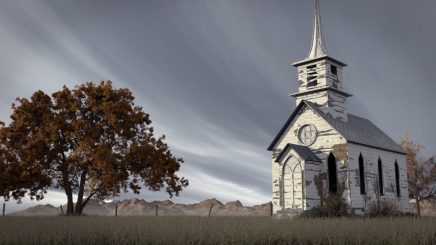
Human dominion over the rest of creation is to be an exercise of kingship that reflects God’s own kingdom. The image of God is not a license for arrogant abuse, but a pattern that commits us to humble reflection of the character of God.
~Christopher J. H. Wright
The Bible opens with the creation in Genesis 1: God creating the heavens and the earth; creating all the living things; making human beings in God’s own image; and charging humans to have dominion over all creation. As author Christopher J. H. Wright notes, “It is not that having dominion is what constitutes the image of God, but rather exercising dominion is what being made in God’s image enables and entitles us to do.” Unlike other living things in creation, God elevated humankind over all other creatures by making them in God’s image and entrusting only human beings to have dominion on the earth.
Being created in God’s image carries with it the responsibility of acting in a manner that shows the character of God’s love for all of creation.
Being created in God’s image carries with it the responsibility of acting in a manner that shows the character of God’s love for all of creation. A reflection of God’s character embodies traits that include love, mercy, care, and justice. We know character “produces hope, and hope does not disappoint us, because God’s love has been poured into our hearts through the Holy Spirit that has been given to us” (Romans 5:4b-5). Human beings are equipped and poised to be advocates for all of creation.
God not only equips us physically and mentally to be advocates, but God provides the perfect example in Jesus Christ (1 John 2:1). Just as Christ showed his love for all of humankind by being the means of reconciliation with God, humankind similarly must assume its responsibility for caring for all of creation by advocating for the protection and care of all. But historically, human beings’ quest for economic prosperity has led not to protection and care, but to harm instead.
…historically, human beings’ quest for economic prosperity has led not to protection and care, but to harm instead.
The costs for prosperity are great and result in unintended consequences that include environmental degradation or destruction of the earth, which impacts all of creation. Future generations are at risk of living in a world that is much different from what we know today. Our waters, our land, and our air are polluted. We are seeing the accumulation of greenhouse gases in the atmosphere that create a global warming effect resulting in changes to our climate. Increased temperatures are causing more frequent, severe, and intense weather events such as hurricanes, droughts, floods, and wildfires. The changing climate is also causing warming ocean waters and rising sea levels that are eroding coastlines.
Overwhelmingly, scientists agree that human activity is the primary cause of the destruction being witnessed on earth. The international body for assessing the science related to climate change, the International Panel on Climate Change, released a 2014 report that states, “[h]uman influence on the climate system is clear, and recent anthropogenic emissions of greenhouse gases are the highest in history. Recent climate changes have had widespread impacts on human and natural systems.”
Likewise, in November 2017, the Trump Administration released The Climate Science Report Fourth National Climate Assessment, which concluded that “based on extensive evidence, it is extremely likely that human activities, especially emissions of greenhouse gases, are the dominant cause of the observed warming since the mid-20th century. For the warming over the last century, there is no convincing alternative explanation supported by the extent of the observational evidence.”
The negative impacts of climate change and pollution are shouldered disproportionately by the most vulnerable—the same communities who have contributed the least to these changes and who are not equipped to implement response measures or to build resilience. Everyone and everything has the right to live or exist in a world free of pollution, to have access to clean water and air, and be void of global warming effects. The case for advocating for the care of all creation is apparent, relying on the tools provided by God’s infinite and creative wisdom (Proverbs 2:6).
Ruth Ivory-Moore currently serves as the Program Director of Environment and Energy for the Evangelical Lutheran Church in America (ELCA). ELCA Advocacy “works for change in public policy based on the experience of Christian ministries, programs, and projects around the world and in communities across the United States. Our faith calls us to learn more and speak out on issues affecting our vulnerable neighbors and the forces threatening creation.” Ruth holds B.S. and M.S. degrees in chemical engineering from Howard University and Ohio State University, respectively. She also holds a J.D. degree from Rutgers University Law School and has studied at the Capital Seminary and Graduate School (Lancaster Bible College). Before joining the ELCA, she worked in the energy industry as an engineer and an attorney. She is active in her church, serving as a Stephen Minister. She believes it a blessing to have the opportunity to be able to combine her engineering and legal education with her Christian beliefs to advocate and to care for all of God’s creation. She operates in the realm of hope, believing that the faith-based community has a unique opportunity to be the voice of reason and persuasion. This article was originally published on The IYM/Engage, a resource of the Office of Continuing Education/Institute for Youth Ministry at Princeton Theological Seminary.


